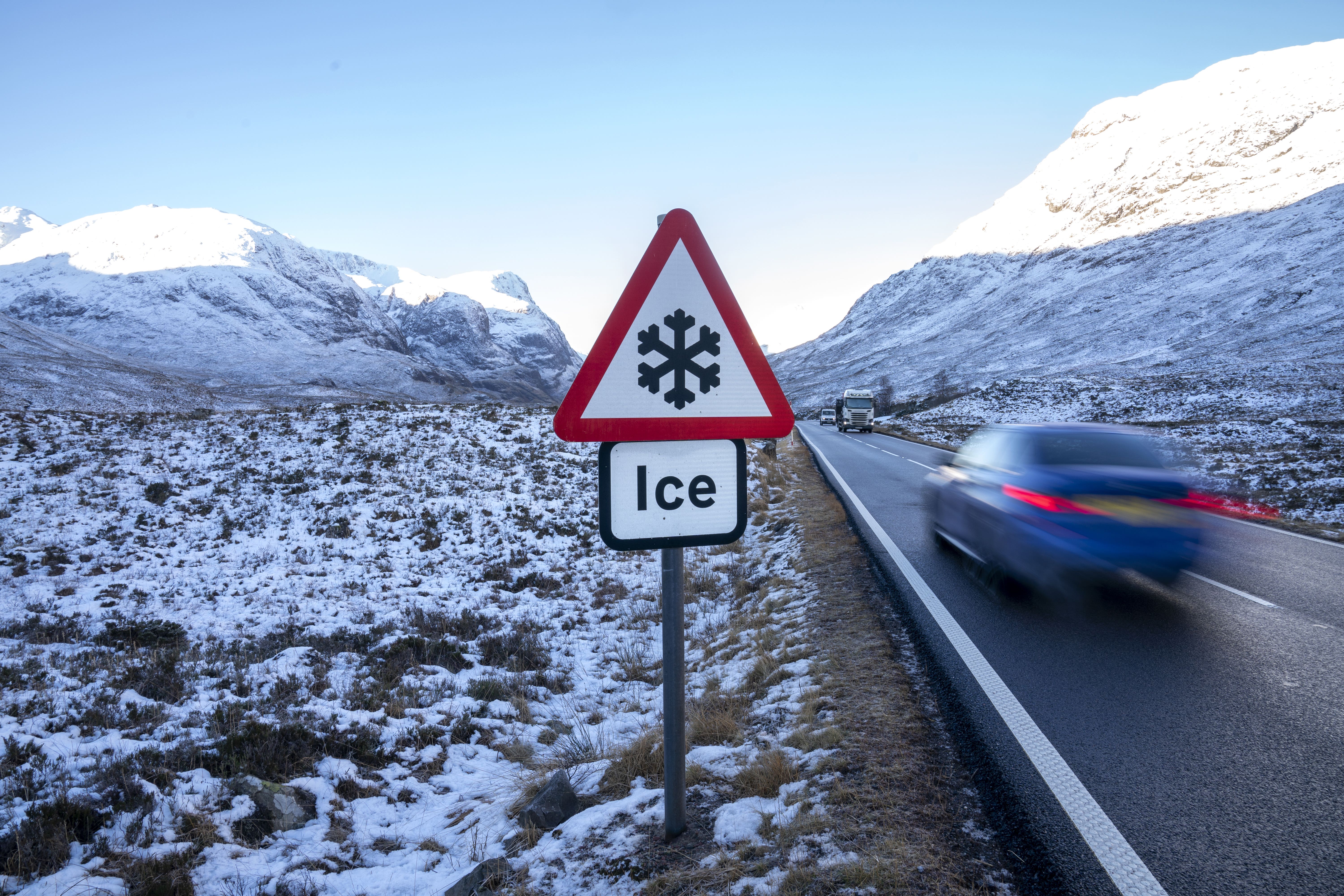Weather warnings brought forward as Arctic air arrives early
Temperatures could plunge as low as minus 10 on Monday night in parts of Scotland.

Your support helps us to tell the story
From reproductive rights to climate change to Big Tech, The Independent is on the ground when the story is developing. Whether it's investigating the financials of Elon Musk's pro-Trump PAC or producing our latest documentary, 'The A Word', which shines a light on the American women fighting for reproductive rights, we know how important it is to parse out the facts from the messaging.
At such a critical moment in US history, we need reporters on the ground. Your donation allows us to keep sending journalists to speak to both sides of the story.
The Independent is trusted by Americans across the entire political spectrum. And unlike many other quality news outlets, we choose not to lock Americans out of our reporting and analysis with paywalls. We believe quality journalism should be available to everyone, paid for by those who can afford it.
Your support makes all the difference.Yellow warnings for snow across part of Scotland have been brought forward as Arctic air moves over the country and down to northern England, possibly leading to the coldest temperature of the year so far.
The Met Office said temperatures could drop below minus 10C on Monday night on higher ground in northern Scotland, with northerly winds making it feel even colder.
The wintry conditions could lead to up to 10cm of snow on higher ground in Scotland and 5cm at lower levels.
The UK Health Security Agency (UKHSA) has issued a cold weather alert and has placed north-east England, north-west England and Yorkshire under a level three alert, with the rest of England at level two.
A level three alert means there is a 90% chance of severely cold weather, icy conditions or heavy snow, which could increase the health risk to vulnerable patients, the NHS said.
All areas are under alert between 1am on Monday and midnight on Thursday.
The Met Office has issued a yellow warning starting at 6pm on Sunday for snow in the north-east of Scotland, including Shetland.
It advises this could cause disruption to travel, with “some roads and railways likely to be affected with longer journey times by road, bus and train services”.
From midnight on Sunday, the yellow warnings of snow and ice spread to north-western England and north-eastern Scotland, and creep further down the east coast as far as Hull on Tuesday.
Meteorologist Honor Criswick said: “We are expecting a few more snow shower outbreaks into this evening and seeing a bit more snowfall early on, which is why the warning was brought forward.
“We are expecting pretty cold conditions and snow showers over the next few days across Scotland and northern parts of England.
“Temperature wise, we could possibly see lows of minus 10C in the sheltered glens and higher ground across northern Scotland on Monday night, so it’s going to be feeling quite cold and the breeze is picking up a little bit so will be feeling rather chilly.
“Potentially we could see some of the coldest temperatures so far this year. The lowest we have seen was in January at minus 10.4C, so we could see something turn lower than that.
“We are expecting between 5cm and 10cm of snow across higher ground, so if we see more accumulations on lower ground of between 2cm and 5cm we could see some travel disruption on Monday into Tuesday.”
Areas affected by the warnings could experience power outages, delays to road, rail and air travel, icy surfaces and some rural communities may be cut off by the freezing conditions.
Dr Agostinho Sousa, head of extreme events and health protection at UKHSA, said: “During periods like this, it is important to check in on family, friends and relatives who may be more vulnerable to the cold weather, as it can have a serious impact on health.
“If you have a pre-existing medical condition or are over the age of 65, it is important to try and heat your home to at least 18C if you can.”